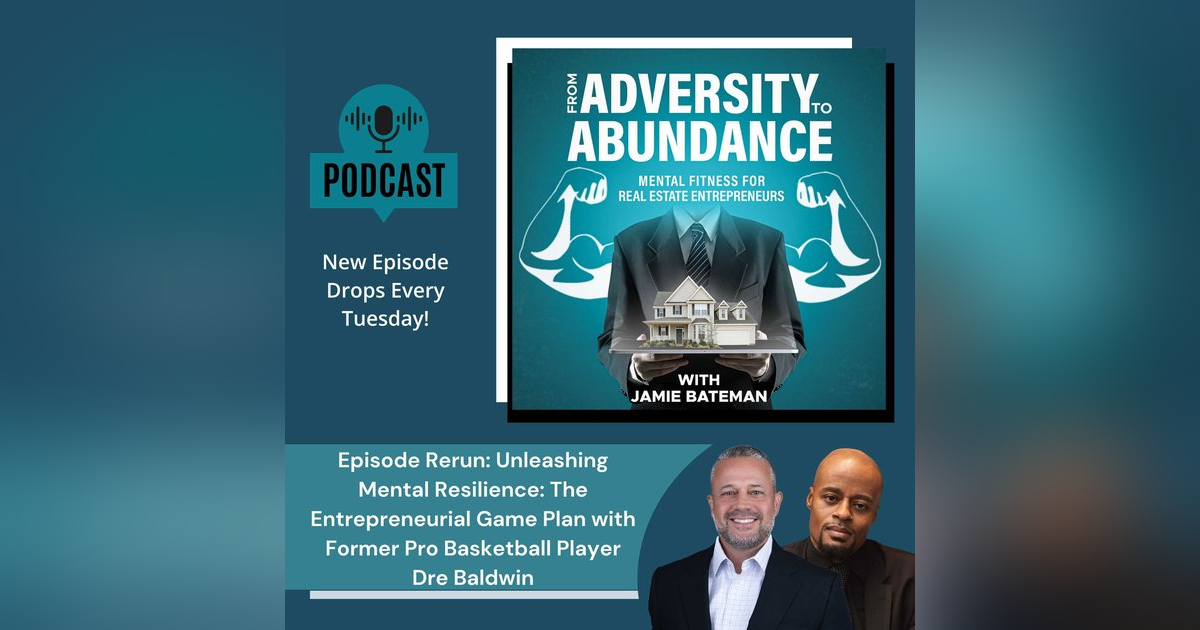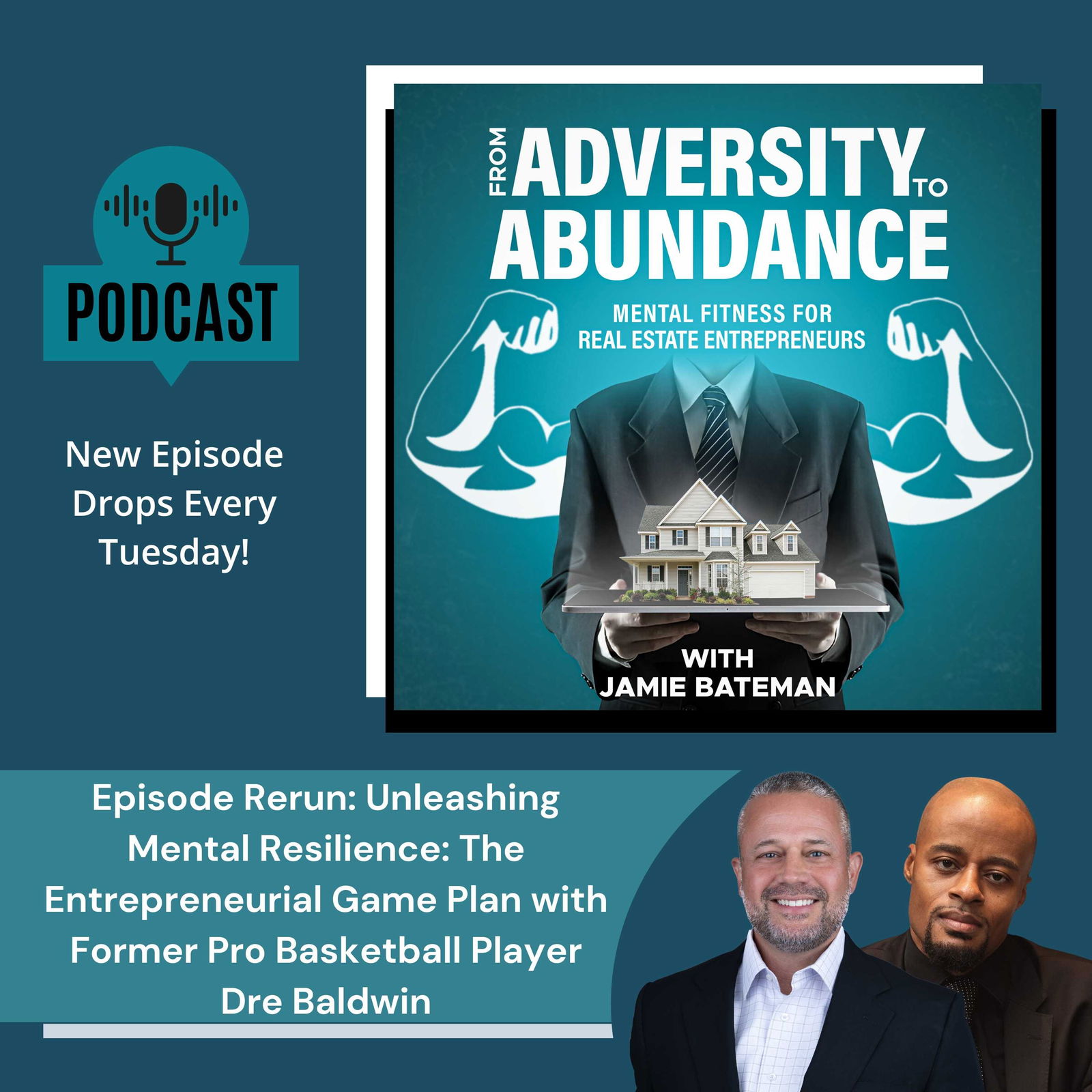Episode Rerun: Unleashing Mental Resilience: The Entrepreneurial Game Plan with Former Pro Basketball Player Dre Baldwin


In this inspiring rerun episode of From Adversity to Abundance , we revisit the incredible story of Dre Baldwin, a former professional basketball player turned entrepreneur and motivational speaker. Dre’s journey highlights the power of self-belief, personal development, and perseverance. From navigating the competitive world of sports to becoming a business coach and content creator, Dre’s story reminds us that with the right mindset, anything is possible.
Key Topics Discussed:
- Mindset Transformation : How personal development shaped Dre’s approach to success.
- Turning Passion into Profit : Combining basketball skills and entrepreneurial ideas to build a thriving brand.
- Overcoming Adversity : Navigating setbacks and obstacles on his path to success.
- Content Creation : Leveraging online platforms to connect with an audience and build influence.
- Lessons from Books and Mentors : The pivotal role of self-education in his entrepreneurial journey.
Key Takeaways:
- "Success begins in the mind." – Dre Baldwin shares how adopting a growth mindset helped him rise above challenges.
- "The best investment you can make is in yourself." – Dre emphasizes the transformative power of personal development.
- "Turn setbacks into setups for success." – Insights on using adversity as a stepping stone.
Connect with Dre Baldwin:
WEBSITE: https://workonyourgame.com
https://www.workonyourgameuniversity.com/
LINKEDIN: https://www.linkedin.com/in/dreallday
FACEBOOK: https://www.facebook.com/WorkOnYourGameUniversity
INSTAGRAM: https://www.instagram.com/drebaldwin
TWITTER: https://twitter.com/DreAllDay
YOUTUBE: https://www.youtube.com/@DreB
TIKTOK: https://www.tiktok.com/@workonyourgame
Integrity Income Fund:
https://app.myleadbutler.com/v2/preview/durLfkDjZHoJstX54tWe?notrack=true
—
Labrador Mentorship:
labradorlending.com/investors/active-investors/
—
Haven Financial Services:
Learn more: jamie.myfinancialhaven.com/
—
Purchase Jamie’s Book: www.amazon.com/dp/B0CGTWJY1D?ref_=pe_3052080_397514860
—
Leave us a REVIEW: podcasts.apple.com/us/podcast/from-adversity-to-abundance/id1618672867?mt=2&ls=1
www.adversity2abundance.com/reviews/new/
—
Podpage:
Calling all aspiring podcasters and seasoned pros! Transform your podcast with a stunning website in minutes. Sign up for Podpage today to effortlessly grow your audience with our easy-to-use tools.
Sign up here: www.podpage.com/?via=jamie-bateman
Connect with us
Website: www.adversity2abundance.com
Facebook: www.facebook.com/profile.php?id=100089126144055
Instagram: www.instagram.com/adversitytoabundancepodcast/
LinkedIn www.linkedin.com/company/89949391/admin/feed/posts/
Youtube: www.youtube.com/@FromAdversity2AbundancePodcast
Connect with Jamie
LinkedIn: www.linkedin.com/in/jamie-bateman-5359a811/
Twitter: twitter.com/batemanjames
Join us for an inspiring conversation filled with practical tips and valuable insights to turn adversity into abundance!





